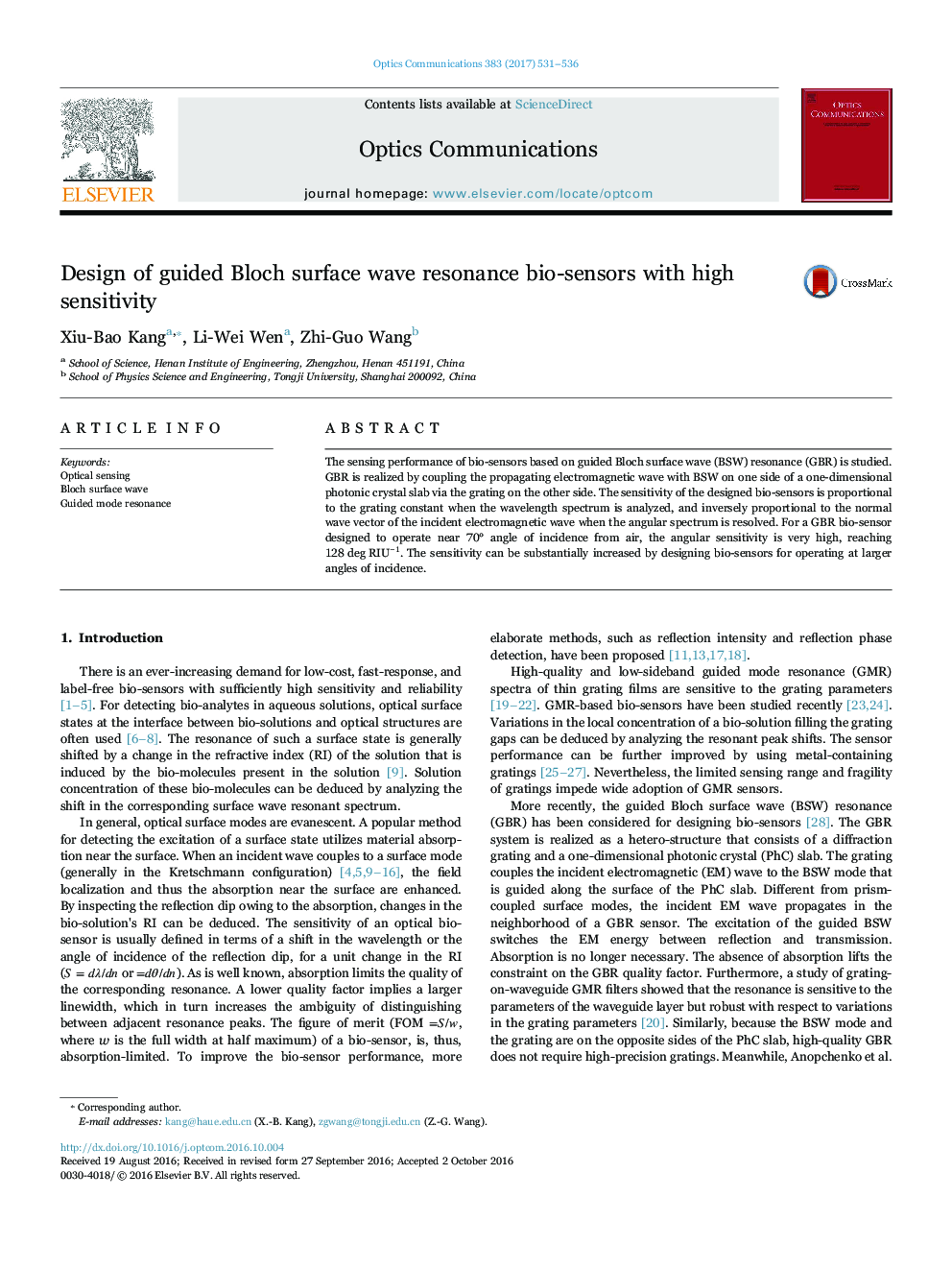| Article ID | Journal | Published Year | Pages | File Type |
|---|---|---|---|---|
| 7927258 | Optics Communications | 2017 | 6 Pages |
Abstract
The sensing performance of bio-sensors based on guided Bloch surface wave (BSW) resonance (GBR) is studied. GBR is realized by coupling the propagating electromagnetic wave with BSW on one side of a one-dimensional photonic crystal slab via the grating on the other side. The sensitivity of the designed bio-sensors is proportional to the grating constant when the wavelength spectrum is analyzed, and inversely proportional to the normal wave vector of the incident electromagnetic wave when the angular spectrum is resolved. For a GBR bio-sensor designed to operate near 70° angle of incidence from air, the angular sensitivity is very high, reaching 128 deg RIUâ1. The sensitivity can be substantially increased by designing bio-sensors for operating at larger angles of incidence.
Related Topics
Physical Sciences and Engineering
Materials Science
Electronic, Optical and Magnetic Materials
Authors
Xiu-Bao Kang, Li-Wei Wen, Zhi-Guo Wang,
